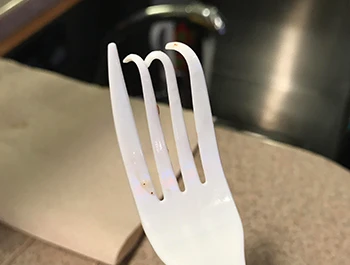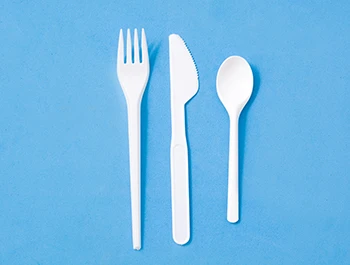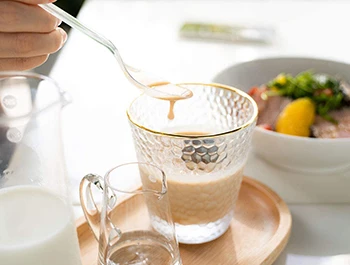A smart kitchen can’t imagine without a dishwasher. But the melted plastic utensils during washing are the key issue for users. We don’t want to miss sharing with you that is plastic spoon melted in dishwasher toxic.
This question isn’t very important when you normally use your plastic spoon for different chores in your kitchen. When you put the spoons in your dishwasher can make the effect of it. The spoons can melt and make a melted smell which is very disgusting.
It is difficult for our health as some plastic may leach dangerous chemicals or toxic into the machine. Plastic utensils produce harmful toxic byproducts, which can be responsible for damaging your liver and thyroid.
Stay with us and learn what you must do if the plastic spoon melts in your dishwasher machine with more important facts.
Are Plastics Dishwasher Toxic?
No, all types of plastics dishwasher aren’t toxic. Some plastic may leach out chemicals that come into contact with foods with heated water and release chemicals, but it is a rare case with plastic products produced for dishwashers.
Normally, plastic containers, boxes, dishes, and other cookware allow being used in dishwashers because they are dishwasher-safe and non-toxic. Certain plastic labelled and specially designed as microwave-safe and dishwasher-safe. They also come with manufacturer instructions to use.
So, it is not possible to melt the plastic until they become worn, scratched, or heated under very high temperatures. Only in this case can chemicals leach out from the plastic and increase the risk of contamination.
It is crucial to inspect plastic dishwashers and exchange them if the machines are worn and damaged. Most dishwashers are designed to be used with particular types of plastics. If the plastics aren’t produced in the dishwasher, you should avoid using this kind of utensil to release toxins.
Is Plastic Spoon Melted In Dishwasher Toxic?

Yes, melted plastic spoon poses a potential risk to our health. And the high heat may liable harmful chemicals to leach out from those plastic spoons.
Plastic utensils are made from harmful toxic byproducts that can emit when heated. The toxic known as oligomers are formed during plastic production and can be poisonous to humans.
But it can be different with dishwasher-safe plastic. They are allowed to wash in the machine without any issues. Most plastic comes with a label indicating whether it is dishwasher safe. Some non-dishwasher safe can release dangerous pollution when washing in heat.
Some research noticed that unconsciously eating small pieces of plastic is not a major issue that might be melted in the dishwasher during washing. It is not a very healthy risk because it will pass through your digestive tract and also can be eliminated in the usual manner.
What Type Of Plastic Is Plastic Spoons?

Most common types of disposable cutlery are produced from plastic, whereas plastic cutlery is produced from polystyrene and polypropylene. The food storage lids, containers, and other plastic cutlery are polypropylene. It is top-racking safe and BPA-free that can be run in the dishwasher without melting risk or making it toxic.
How Does Melted Plastic Spoon Toxic?
Plastic spoons or other utensils produce dangerous toxic byproducts which can transform into foods after heating. When plastic is used for cooking, expert scientists warn folks and suggest concern that it can produce poisonous to human beings, especially when people will go to cook with a plastic spoon at temperatures more than 70 degrees C or 158 degrees F.
Scientists found about 30% of melted plastic spoons released up to 5mg of oligomers. When they come too near human health, these higher doses of oligomers can affect your liver and thyroid.
Though there is no trustable toxicological data for plastic spoons or other food utensils, expert scientists suggest that the manufacturer of plastic utensils performs better and is safer to conclusive risk.
Using plastic spoons may lead to inhalation or digestion of micro-plastic and toxic substances like carcinogenic or endocrine-disrupting impacts.
Is Melted Plastic Toxic To Breathe?
Generally, inhalation of plastic fumes may lead to the risk of heart disease and other breathing issues like asthma, skin irritation, headache, and more organ damage to the liver, kidney, and reproductive system.
Are Melted Plastic Spoon Fumes Dangerous?
Yes, melted plastic spoon fumes will be harmful and may cause serious health issues. The fumes from the melted plastic spoon can include toxic chemicals containing the byproducts of plastics like ethylene and acetylene.
Inhalation of higher concentration can lead to dizziness, loss of coordination, and coma or death. Desperate coverage to the breathing tract may cause serious irritation of your eyes, nose, and throat.
Long-term contact can be the key reason for cancer and other respiratory diseases like asthma. Taking a breath in these fumes can increase the hazard of congenital disabilities or generative problems. For the above reasons, taking proper precautions and using perfect ventilation during melting plastic is vital.
Are Plastic Spoons Dishwasher Safe?
Yes, some plastic spoons are made from high-quality plastic. You can use them for cooking food or serving. They are strong enough to be washed and reusable. They are dishwasher safe, and there has no chance of melting into the dishwasher.
Why Should We Use BPA-Free Plastic Spoons?
A few years ago, much information came out about the bad effects of BPA, a chemical found in hard plastics frequently used in plastic utensils. BPA was linked to problems like infertility, brain and prostate gland of fetuses, high blood pressure, cardiovascular disease, fatness, and type-2 diabetes. It can affect our kid’s behaviour.
The USA Food and Drug Administration (FDA) reported that BPA is safe at a very lower level than containing some foods. This is the best result based on a thousand reviews of trustworthy studies. The FDA also continue their studies and suggests staying concerned about BPA:
- Use BPA-Free Products: nowadays, many manufacturers supply more BPA-free plastic products. They maintain the BPA label as BPA-free. Plastic products are also marked with recycling codes 3 or 7 that contain low-level BPA.
- Don’t heat to wash the plastics: don’t put your plastic spoons or containers in your dishwasher because they may break down into heat and let the BPA leach out into foods.
How Much Is BPA Harmful?

According to the report of 2014 from the FDA, the BPA exposure should be less than 2.25 milligrams per pound or 5 milligrams per kg based on the body weight per day.
What Temperature Do Plastic Spoons Melt?
According to the Dynalap Corp, high-density Polyethylenes (HDPE) and Low-density polyethene (LDPE) can melt at 130-degree Celsius or 266-degree Fahrenheit and 120-degree Celsius or 248 degrees Fahrenheit.
Is Eating Melted Plastic Toxic?
The American Plastic Council cites a former FDA chemist, Dr Charles Breder says, “if you consume melted plastic with your food accidentally, it would not suffer you very long, or you don’t affect in any harmful effects to your health. But probably the taste of your food can be changed or not appetizing.” And melted plastic is indeed toxic and dangerous to your health always.
What Is The Best Process To Remove melted plastic from the dishwasher?
Among a lot of ways, ice can be the best way. Just place it in a zipper bag, set it on top of the cooled plastic, and allow it to be fixed for 30 minutes. The placed ice freezes the melted plastic and makes it easy to remove from the dishwasher’s surface.
With a plastic dye scraper or nonmetal implement like a wooden spoon, get rid of the ice from the warming coil and then scrape the hardest plastic smoothly.
Takeaway!
Certainly, dishwashers are the best kitchen gadget to save time and effort in your kitchen time. But when you use plastic utensils on this heating machine, cleaning and removing the burning smell will be very tough.
This issue is a risk for your machine and serious for our health. The melted plastic spoon in the dishwasher is toxic and increases our health risk, creating various diseases over time.
If you want a permanent solution to this problem, you should wash all your plastic spoons and other utensils by hand. It may take some time, but it will save you and your family’s life and health from serious diseases.
